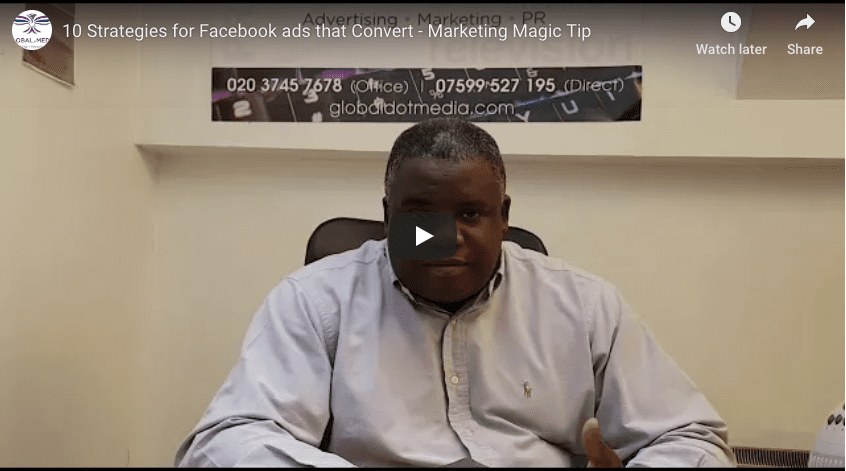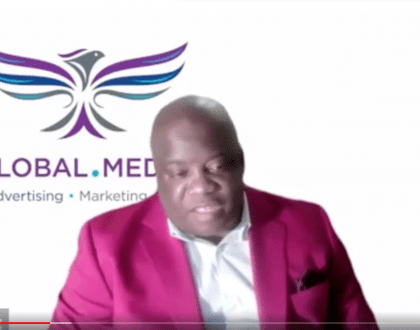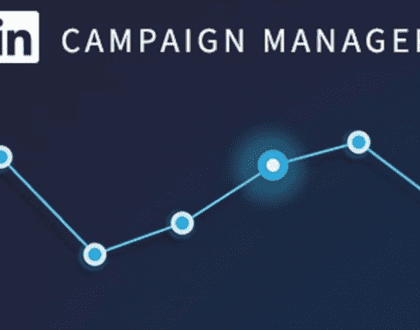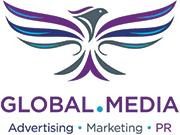10 Strategies for Facebook ads that Convert- Marketing Magic Tips

by EnyOsung
4th November 2018
in Advice, Articles, Blog, Business tips, Entrepreneurs, facebook marketing, Marketing Magic Tip, Pay per click, Small Business, Social media marketing, Startups
No Comments
6211
10 Strategies for Facebook Ads that convert – Marketing Magic Tips
You’d have to be living in a bunker deep underground to have failed to realise that Facebook Ads is growing in popularity for businesses. Marketing on the social media platform is only going to increase because it looks easy to find clients using Facebook Ads. That is why 93% of marketers use Facebook to advertise. Anyone who has done Facebook ads knows that it is easy to spend a tonne of your hard-earned cash and not get the results you want or expect. I have been there, so I know how frustrating that feels especially as we see and read about others who have built their business on Facebook ads alone. This post is a guide to create compelling ads that will have people raving to buy from you or work with you?
If you want to build your business by using Facebook Ads (even if you suck at them), then this blog is for you. I will tell share the strategies I use to get thousands of warm leads and customers for my clients (all small businesses).
Advertising business
Every business needs a stable pipeline of prospective clients that are in the process of buying your products or service. Marketing and advertising is the way to not only find these ‘prospects’ (aka leads) but to also engage and nurture them until they are ready to buy.
The average UK SME owner will be putting around 16% of their 2018/19 budget into marketing, according to a study by performance marketing network Affilinet. Furthermore, Social media (22%) came out on top of the list marketing elements that small business leaders will be looking to prioritise in the coming year. It follows that marketing is central to any business and most of us will try to take advantage of any glimmer of light that may make our lives easie, while bringing the results we want.
Facebook advertising
Facebook makes its profits in two main ways: by collecting as much data as possible from us and by controlling what we pay for access to that data. The figures tell the real story: Facebook has 1.1 billion daily users, so pretty much everyone from the grannies to business owners and their children is on Facebook. Added to that Facebook has built their business on collecting data from their users (us) that we willingly give them. They use the information to “personalise” the platform for companies who pay to advertise there. Facebook has become the go-to platform to target your ideal clients all in one place.
It turns out that some of the information Facebook has been using to target ads has not been provided to the site at all, explicitly or otherwise. This has been dubbed “shadow information”, and includes contact details shared with the platform by another user, such as those provided for the “find friends” function (Marketing Tech). Digital rights campaigner Electronic Frontier Foundation (EFF) has even called the social network “deceptive and invasive” as a result of how they use people’s data, sometimes without us knowing or without us giving consent. Whatever the ethical and moral arguments about Facebook’s data sources and practices, their detailed targeting information is precisely what makes Facebook ads so useful for small businesses – we can target the right people with the right message so that they are more likely to buy our product or service.
Google vs Facebook
Some may ask: isn’t Google Ads bigger than Facebook ads? The simple answer is ‘yes’. Google is a bigger advertising platform than Facebook because it generates higher ad revenues. Google’s $84.69bn ad revenue compared to Facebook’s $33.84bn revenue in the last year proves the fact.
More importantly for businesses looking for the right advertising medium, Facebook ads and Google Ads are fundamentally different:
- Google is best for things that people are actively searching for hence it is best described as search marketing.
- Facebook is heaven for things that people may not know they are looking for. So it fits the concept of discovery marketing.
Furthermore, Google search Ads are mostly text-based with around 30 characters available to describe your product or services whereas Facebook allows more words and most importantly, engaging photos and videos.
For marketers, it is not a matter of which ads platform is better as they are distinctly different. However, there are predictions that within two years, Facebook and Google will be the only good advertising platforms worth spending your money on as a small business – unless you can afford the high costs of offline advertising on radio or television.
Now that you are sold on the rationale for Facebook ads, let us look at what business do, where many go wrong and how to sell more:
Doing Facebook ads Challenges
There are likely to be many reasons you may be disappointed by your Facebook ads spend from not assigning sufficient budget to being overly unrealistic in the results you may have expected. However, all things being equal these are some of the reasons our analysis have highlighted two common failures:
- Unrealistic expectations – Many advertisers hope people to buy on the strength of seeing an ad alone. In reality, people rarely buy the first time they come across a business regardless of how tempting the offer. Remember the adage: people buy from people they know like and trust. So unless you are effectively giving away gold dust or the elixir to eternal youth, people will want to research first and perhaps buy at a future date. You should see Facebook ads as the start of a relationship journey that may lead to conversions over time.
- Poor or no targeting – this is an excellent moment to distinguish between Facebook ads where you set detailed targeting parameters and develop creatives specifically for the advertising campaign and ‘boosting posts’ on Facebook. Boosted posts are essentially untargeted posts in the sense that you are missing out Facebook’s full plethora of targeting capabilities so resist boosting posts.
- When it comes to why digital ads fail, a recent study conducted by Viant Inc shows that targeting inaccuracies account for 27 per cent; and anonymous ad targeting amounts to 26 per cent. In other words, businesses are unknowingly serving the wrong message to the wrong people who are not interested in their offerings. To eliminate wastage of advertising resources, advertisers need to deliver the right message to the right people at the right time. A slight miscalculation results in wasted money. When Accenture surveyed chief marketing officers, it found that, on average, fewer than 20 per cent of the audience reached by each of the marketers was the right customer for the offered product. In digital advertising specifically, only 18 per cent of the customers reached were shopping for the products.
- Running one ad only – marketing and adverting is a process. Most businesses know the experience of doing something with an expected set of results that does not happen the first time. However, we learn and adjust our materials and settings to get us closer to our objective. You cannot learn anything from running one ad only. At the very least you want to test different components of your ads until you find the most effective ad copy.
More on how to reduce these errors and build variations into your Facebook ads in the following ‘how- to’ section.
10 Steps to get Facebook ads right
These are some of the crucial steps we follow to get facebook ad results for our clients:
- Develop a marketing strategy – A good marketing strategy identifies your business goals and works backwards to plot the route to achieve them. What do you want to accomplish? What are the different marketing strategies you plan to use? Goals are vital if you’re going to use your advertising budget effectively. When setting them, consider whether you want to improve your branding, boost lead generation or increase sales.
A crucial part of your Facebook marketing strategy is to clearly and accurately specify your target market – the people you want to see your ads. Target the right people with the right message at the right time, and you might have a shot at engaging them.
Successful advertisers have a deep understanding of your target audience. It’s important to know how they live their lives, what’s important to them and then how your product and services can make their lives better.
Neil Patel recommends that you’ll want to write down the following information when writing out your buyer persona for Facebook ads:
- Age and Gender
- Location
- Who/What influences them
- Language
- Interests/Hobbies
Another vital part of targeting I want to highlight is to make sure you have a clear description of what your brand offers and what it stands for in your ads. Outline your key benefits, both functionally and emotionally, and flesh out the values you want to project to your customers. If you know what your brand delivers, then determine whom best benefits from your offering. Determine the best fit, from a customer perspective, so that you can specifically target those people. (Joseph)
Once you know what your goals are, whom it is that you’re aiming, and decide that Facebook ads will help you best reach them then you should specify the return on investment (ROI) that will make your advertising worthwhile. Within the evaluation of the performances you want, you will be able to allocate a budget to the advertising campaign.
Source: Samantha Rupert (Volusion)
2. Components of ads – Advertising is as much science and an art at the same time. There are four components of Facebook advertising campaigns (See diagram above):
- Message – develop a marketing message track that will connect your brand with your target audience. With brand and customer fully defined, you can outline your message to engage with your customers on their terms with your product and brand benefits.
- Creative – facebook ads can have images and videos that capture people’s attention. As a major hint, videos tend to get more engagement these days compared to pictures.
- Offer – You want your ads to drive people to act now, instead of putting off a decision until later (usually=never). Decide on the best offer you can give and still achieve your return on investment from the campaign.
- Hook – The offer will typically be stated in the headline of your ad so that it is the first thing your audience sees when they look at your advert
3. Create variations of your components – In designing your ads, you should combine the four elements of ads above because you want to test the ads to eventually arrive at the ad copy that gives you the best returns. You want to create at least two variations of each component. For example 2 versions of the message – short and long versions with each creative, hook and offer.
4. Plan everything – document every element of your ad campaign before you touch Facebook including objectives and parameters – Treat your Facebook ads as scientific experiments, so meticulously document everything about the advertising campaign. Your records will help to analyse the performance later on and establish which changes may be required.
5. Establish PPC criteria & settings – will you pay ‘pay per click’ or ‘pay for impressions; and where do you want your ads to be? Small businesses with tight budgets may want to limit their ads to Facebook users’ timelines and right hand columns only to conserve their budget. Others may want the ads also to be displayed on Instagram or Messenger as well as Facebook partners’ sites or Facebook’s catalogue of content types. Running your ‘experiments’ and analysing the data is the best way to evaluate what works for your campaign.
6. Install Facebook Conversion pixels – Facebook ads give you several options including sending people to your website and tracking conversions. If you choose this objective, be sure to install the Conversion pixel (that you will get in the setup process) on your website. The pixel will help to identify and track people who engaged with your ads and visited your website/landing page to whom you can remarket to in future if you desire and setup up re-marketing campaigns – more about remarketing below.
7. Set up remarketing ads – many businesses that invest heavily in Facebook ads make most of their returns by tracking and following up with people who have shown interest in and engaged with their ads. Facebook pixel is a cookie that goes on your website to track those people so that you can then show them further ads when they go to Facebook. Many businesses offer bigger incentives to get even more engagement while some give free offers in exchange for contact details like email address so that they can continue to build a relationship with these warm leads.
8. Monitor your ads campaign – “Half the money I spend on advertising is wasted; the trouble is I don’t know which half.” These are the words of the 19th-century business magnate, John Wanamaker. You may be one of the few miracle advertisers who strike success with every Facebook ad you ever run. You are more likely to see progress towards your business objectives with much room for improvement, however. Reviewing the analytics will help you make informed decisions about the quality and integrity of their traffic both on and offline from your Facebook ads campaign. Your ads’ analytics also gives you a great opportunity to establish how each of your ads and components is working. You may find that one of the ads is performing best, but is costing you the most. For example, that you are paying too much per click, meaning you’ll need to rework your campaigns to get a good ROI for a better price. Review performance data on an on-going basis and make changes as required in targeting, geographical location, budget, adjusting or even turning off ads that are not working.
9. Understand the ROI of your advertising – This is an important metric to have if you’re trying to eliminate waste in your ad budgets. Will you measure with Number of new followers, website visitors, Revenue, Number of sales, Customer Lifetime value?
10. Re-run winning ads – You will want to carry on running ad campaigns that bring the results to meet your business objectives and turn off or change the campaigns that are not working for you. As you go over the results of campaigns and your goals for the upcoming months, you’ll gain a better idea of how your advertising budget should be allocated, making things easier and smoother to manage in the future.
Next steps
Facebook ads work if you know what you are doing and you learn with each campaign. Never boost posts unless you are willing to spend your money in a less targeted way. Following the steps above and being systematic in your approach will enable you to get better and better results for your business progressively. I find that the most important thing is to be willing to learn from the analytics data while taking small steps forward until you can be confident that you are close to the ad copy and parameters that help your business.
*********************************************************************************************************************
Global.Media provides expert online and offline advertising, and marketing on all digital platforms to get qualified leads for businesses. Check out our Services page to see how our advertising and marketing services can help your business to get more customers and sell more, faster. Why not sign up for our newsletter using the simple form on the right? You can also follow us on social networks. Finally, we’d love for you to share this post with your network using the share buttons below.
********************************************************************************************************************
We’d love to have your feedback and suggestions about this post. How Facebook ads benefitted helped your business? Tell us about your experience of running Facennbbo ads. What has worked particularly well for you? Please leave your comments in the Comments Section below.
Other posts you may like
Do I really need an SSL certificate?
The Secrets of Great Marketing – Marketing Magic Tip
Top 5 Ways Digital Marketing Is Important For Your Business
10 Ways Coaching Saved My Business
Our Digital Marketing Services:
Website Design | Search Engine Optimisation (SEO)| LinkedIn Marketing | Content Marketing| Email Marketing| Pay-Per- Click| Social Media Marketing| App Development & Marketing| Business podcasts | Video marketing
HOME | ABOUT | MaAD BLOG | PODCASTS | TESTIMONIALS
Download Our Mobile App to listen to our podcasts on the go Get Mobile App
Recommended Posts

Eny talks with Lydia on The Joyful Path Podcast
9th December 2022

How to use new LinkedIn Campaign Manager
20th July 2022



